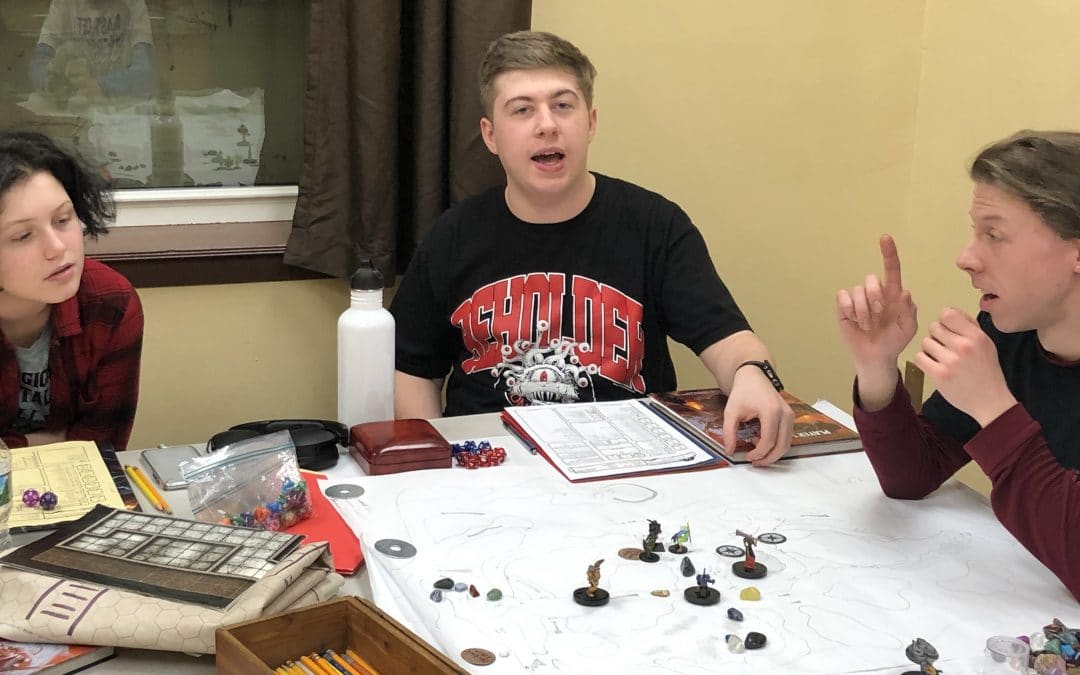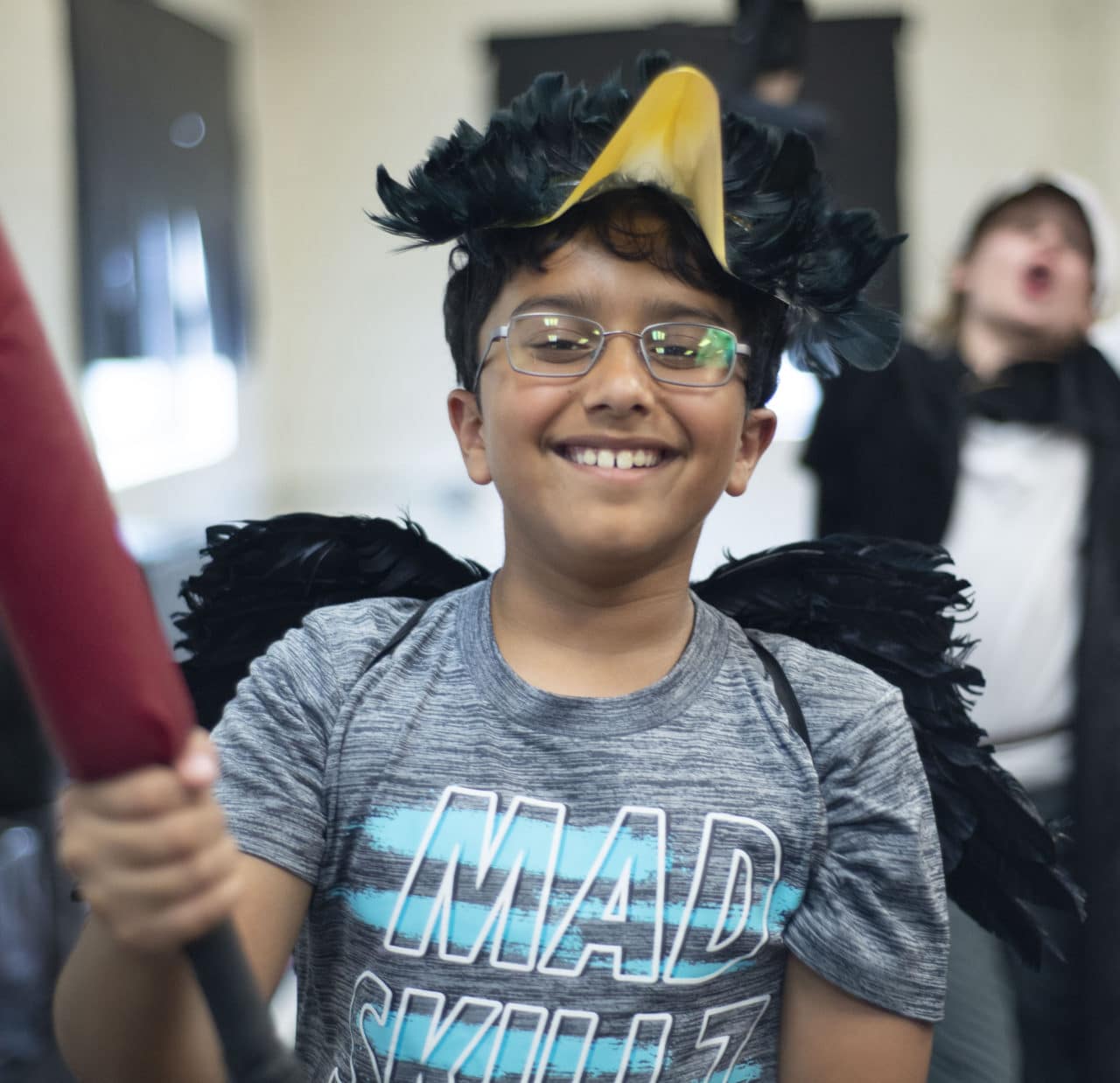Live Action Role Playing (LARP) and tabletop Role-Playing Games (RPGs) are finally being recognized as effective educational tools because they harness the power of immersive experiences to facilitate learning. Back in 2002, our company recognized that these role-playing modalities leverage three key motivators for learning: Autonomy, Progress, and Belonging. These happen to be the same motivators that make video games so appealing to participants. We just decided to “unplug” the experience and replicate these elements within LARP and RPGs. Our success allows us to shed light on their potential to greatly enhance the educational experience.
Autonomy: Personalized Learning Paths
Autonomy in learning is about offering choices and control over the learning process. In both LARP and RPGs, players are given the freedom to choose their characters, actions, and responses to various scenarios, which aligns with the Self-Determination Theory (SDT). This theory states that autonomy is a critical factor in motivating learners. Studies have demonstrated that when learners feel a sense of autonomy, they are more likely to engage deeply and meaningfully with the material[1]. In LARP and RPGs, this translates to participants actively engaging in creating their own story from the narrative and making decisions that influence action and their character’s development, mirroring real-world decision-making.
We also differentiate “autonomy” from “agency” in LARP and RPGs. Agency, in this sense, is the ability to change the narrative outcome. In other words, a typical board game has specific outcomes for winning. However, in LARP and RPGs that allow a higher level of agency, the game designers and the game facilitator will actually change the overarching narrative to reflect the decisions of the players – even so far as completely re-writing what they originally had in mind if necessary. This degree of player agency is a powerful aspect of co-creation and can improve the overall experience.
Progress: Visualizing Skill Development
Progress is a vital motivator in learning because many participants and learners need to see and measure their growth. In LARP and RPGs, progress is often tangible and visible. An example of this is providing players with “Skill Tokens” when they accomplish a specific task. These tokens can then be used to purchase more character skills or even artifacts or information that can be instrumental in the navigation of the challenges their character faces.
Participants also develop skills in areas such as problem-solving, communication, teamwork, and even STEM education if the game is an EduLARP. The experiential learning model, which both LARP and RPGs embody, emphasizes learning through experience and reflection (or Debrief), leading to a deeper understanding and retention of knowledge[2]. Players also get to navigate through challenges and achieve specific goals in the game seeing their progress in real-time, which is both motivating and rewarding.
Belonging: Creating a Community in Role-Playing
Of the three motivators listed, the most important is Belonging. If a player or student does not feel like they belong in the game or learning environment, then they will not feel agency and likely have a distorted sense of progress compared to the other participants. LARP and RPGs can create a unique sense of community among participants by encouraging the players to bring aspects of themselves into the game environment and have those aspects make a difference. This can create a level of authenticity in the experience that encourages them to feel like they not only belong… they matter. An example of this is creating a special skill for a player who likes to sing – and that if they sing their wizard spell, it creates a more powerful impact in the interaction.
This aspect of belonging aligns with Vygotsky’s Social Development Theory, which emphasizes the importance of social interaction in learning[3]. The collaborative nature of role-playing activities encourages communication, empathy, and understanding among players while building a supportive community that values differences and varied lived experiences. This sense of belonging can lead to increased motivation, engagement, and retention of information, as players feel they are authentically part of a larger, meaningful experience.
The Role of Game Masters in Facilitating Learning
In both LARP and RPGs, the role of the Game Master (GM) or facilitator is crucial in guiding the narrative and ensuring a positive learning experience. The GM make the game more inclusive by exploring the culture of some or all of the participants. They can adapt the game to suit educational objectives, adapting scenarios to reinforce specific skills or knowledge areas[4]. Examples of this include players learning spells that are based in physics or warrior characters learning about the geometry of sword fighting. This adaptability can also enhance the autonomy and agency of the learners if the game evolves to meet their individual needs and interests. An example of this is allowing the players to research and create their own spells or skills based in STEM.
The motivators of Autonomy, Progress, and Belonging not only make learning more engaging but also help the participants better understand how they can co-create a thriving learning environment or workplace. The integration of LARP and RPGs that use these motivators into educational frameworks can prepare learners for real-world challenges in a way that traditional methods cannot replicate.
—
Footnotes
- Ryan, R. M., & Deci, E. L. (2000). “Self-Determination Theory and the Facilitation of Intrinsic Motivation, Social Development, and Well-Being.” American Psychologist.
- Kolb, D. A. (1984). “Experiential Learning: Experience as the Source of Learning and Development.” Prentice-Hall.
- Vygotsky, L. (1978). “Mind in Society: The Development of Higher Psychological Processes.” Harvard University Press.
- Bowman, S. L. (2010). “The Functions of Role-Playing Games: How Participants Create Community, Solve Problems and Explore Identity.” McFarland & Company.
Guardian Adventures provides LARP and game consulting and program development for museum and science centers, summer camps, amusement & attraction industries, and more.



